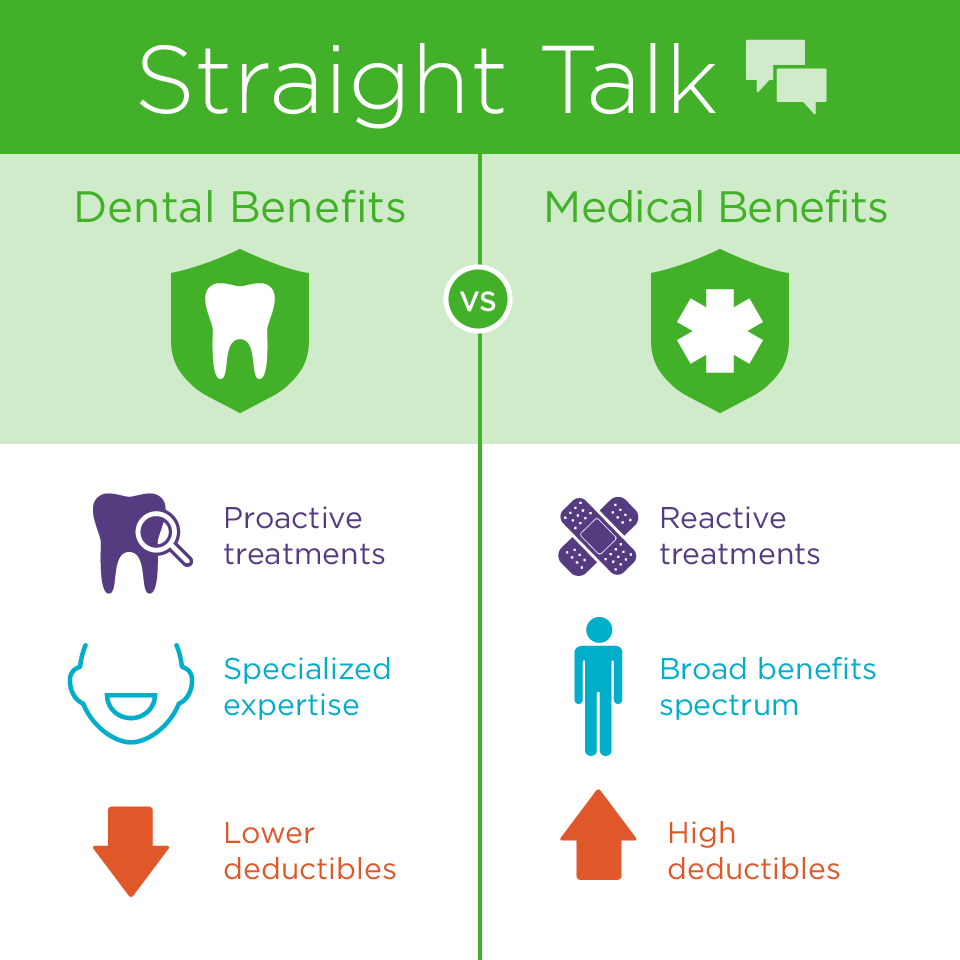How Dental Differs from Medical
Posted on October 26, 2015 in Dental benefit information
 If you have both medical and dental benefits, you may wonder why they work differently when it comes to payments and coverage. Although dental and medical benefits both help cover the costs of certain treatments, they actually serve different purposes.
If you have both medical and dental benefits, you may wonder why they work differently when it comes to payments and coverage. Although dental and medical benefits both help cover the costs of certain treatments, they actually serve different purposes.
Why They're Different
Medical care usually focuses on reactive treatments for disease and illness, treating problems that already exist. And because medical care can be quite costly, medical coverage is designed to help protect you from the burden of large expenses.
Dental care, however, largely focuses on prevention, usually covering procedures such as exams and cleanings at 100 percent. Dental care places an emphasis on preventive care because it helps keep mouths healthy and allows dentists to catch problems while they're still easy and affordable to treat. When it comes to reactive or restorative dental treatments, enrollees share the cost with dental carriers.
Benefits of a Stand-Alone Dental Carrier
When benefit providers offer to bundle dental coverage along with medical coverage, it may seem like a good deal, but it's often not.
Because they cover a wide benefits spectrum, medical insurance carriers don't always have specialized expertise on the dental side. Stand-alone dental carriers tend to have an experienced dentist (or many) on staff to help review claims, protect against fraud, and assist with provider relations.
Going with a dental-only carrier can also help you save money. With an embedded dental plan, members may be subject to the medical plan's overall higher deductible – forcing you to meet the increased threshold before dental benefits take effect.
Separating medical and dental may help keep costs down because there aren't many catastrophic dental claims. Even major dental procedures are often much less costly than many medical claims.
Additionally, there is a trend among multi-line carriers of renting their dental networks through a third party, leading them to lose negotiating power with dentists and inflate administration costs.
Finally, a focus on dental allows stand-alone carriers to focus on what really matters: helping enrollees get the most out of their dental benefits. Medical carriers may not have resources or tools dedicated solely to dental benefits.